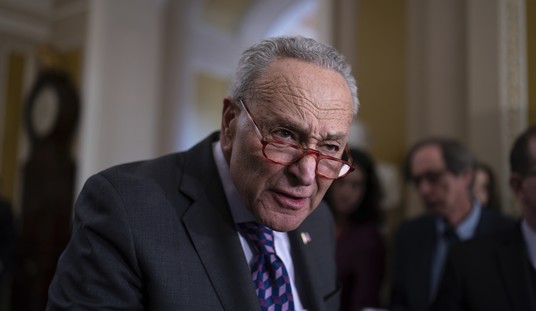
This is my third article analyzing parts of the brief filed by retired federal court judge John Gleeson as court-appointed amicus counsel, charged with the duty of presenting an opposing view to that of the Department of Justice in its Motion to Dismiss the prosecution of Gen. Flynn.
A couple weeks ago I started working on a story about the case of US v. Ammidown which I expected the anti-Flynn forces to rely upon in urging upon Judge Sullivan a view that he should conduct a wide-ranging inquiring into DOJ’s motion to dismiss. Ammidown is referred to by the Supreme Court in its 1977 decision in US v. Rinaldi. which dealt with Rule 48(a). In a footnote, the Court cited the Ammidown decision as one of two examples where appellate courts seemingly had sanctioned a lower court’s exercise of discretion in reviewing the proposed dismissal of charges by DOJ for indications of government misconduct in asking for the dismissal.
As it turned out — somewhat predictably — Judge Sullivan’s written submission from his counsel Beth Wilkinson did rely on the Ammidown decision.
Judge Gleeson’s amicus brief pretty much treats the Ammidown decision as if it was the legal equivalent of Miranda v. Arizona. In his Table of Authorities, where he’s required to list every case cited in his brief, and the pages where the case is cited, for Ammidown he includes the reference “passim”, which if I recall my high school Latin correctly means “I’ve cited it so many damn times I can’t keep track or be expected to note them all here” — or something like that.
The DOJ brief filed in the Circuit Court addresses Ammidown, calling most of the language in the opinion about Rule 48(a) “dicta.” I explain in more detail below what that term means, and how it is relevant here.
Ammidown involved a notorious murder in Washington DC in 1975, in which the victim’s husband arranged for her kidnapping and sexual assault as part of a plan to get her to withdraw money from a bank account she controlled. The husband claimed later that he had not told the perpetrator to kill his wife, and that the perpetrator did that on his own. After originally being charged with first degree murder, the government and the husband later entered into a plea agreement whereby the husband was to plead guilty to second degree murder, and the first degree murder charge would be dismissed by the Court. At the time first degree murder carried a possible penalty of death, while the sentence for second degree murder would normally be life, with a possibility of parole after 20 years. So the change in the charge was significant.
The district court declined to go along with the agreement of the prosecutor and defendant, believing that first degree murder was the more appropriate charge, and second degree murder was not sufficient under the facts of the case. So the district court declined to accept the plea agreement, refused to dismiss the first degree murder charge, and was prepared to force the parties to conduct a trial on the charge of first degree murder that neither wanted to have.
The issue on appeal was the extent of the district court’s discretion to refuse a plea agreement, which required the district court to dismiss the more severe charge as part of the parties agreement to resolve the case on the less serious charge, given that the matter of what charge is most appropriate is vested in the Executive branch — which seemed at odds with the principle that the appropriate sentence as solely a matter for the court to decide.
Here are relevant passages from Ammidown, presented in the order in which they appear in the decision. My edits have simply been for sake of brevity, and I have bolded language I think is noteworthy to the discussion here:
There are no precedents on the problem before us, whether the plea, endorsed by the prosecutor, may nonetheless be rejected by the trial judge because of his conclusion that the defendant should be tried on the higher charge. Rule 11 and the existing case law seem to provide no guide… Neither is there any scholarly discussion of a conflict between the authority of the prosecutor and the trial judge to accept pleas to lesser included offenses in the interests of justice. Discussion of the roles of judge and prosecutor has most often concerned the area of dismissals of criminal indictments.
The Court notes very early that it can find no decisions from other appellate courts addressing the scope of a judge’s discretion to refuse to dismiss a more serious charge in favor of a guilty plea to a lesser charge as part of a plea agreement.
The element in a plea bargain of dismissal of the charge of the greater offense leads us to consider Rule 48(a) of the Federal Rules of Criminal Procedure, which requires the prosecutor to obtain leave of court in order to terminate a prosecution by dismissal of an indictment. Rule 48(a) does not apply as such to the case at bar, but study of the judicial role in dismissals illuminates our course….
Because a plea bargain involves a 2 step process — dismissal of the more serious charge, combined with a guilty plea to a less serious charge — the court says the process has some similar qualities to actions taken under Rule 48(a) to dismiss cases in their entirety. But then the Court explicity says “Rule 48(a) does not apply as such to the case at bar.” That is the signal that all which follows which purports to analyze what Rule 48(a) means is “dicta.” None of its analysis about Rule 48(a) is “necessary” to decide how to apply Rule 11 to the case being decided. It might be helpful, but it is not necesssary. “Helpful” analysis is dicta.
A distinctly different situation is presented when the defendant concurs in the dismissal but the court is concerned whether the action sufficiently protects the public. As to this, while there is a paucity of authority, some principles do emerge. First, Rule 48(a)’s requirement of judicial leave, theretofore known in state practice, gives the court a role in dismissals following indictment. Second, in the exercise of its responsibility, the court will not be content with a mere conclusory statement by the prosecutor that dismissal is in the public interest, but will require a statement of reasons and underlying factual basis. Third, the court does not have primary responsibility, but rather the role of guarding against abuse of prosecutorial discretion. The rule contemplates exposure of the reasons for dismissal “in order to prevent abuse of the uncontrolled power of dismissal previously enjoyed by prosecutors,” and in pursuance of this purpose “to gain the Court’s favorable discretion, it should be satisfied that the reasons advanced for the proposed dismissal are substantial.”
In that first sentence the court ASSUMES that its a matter for the court do consider whether a dismissal “sufficiently protects the public.” The court NEXT acknowledges “As to this, … there is a paucity of authority”, but nevertheless finds some “principles.” This is the root of all the problems that flow after, and why “dicta” is not controlling on later cases. Basically, the judge who wrote the Ammidown opinion is just making stuff up at this point because he found a “paucity of authority” on the subject before the court.
In this context, it may be helpful to note the considerations, other than protection of defendant, that have been taken into account by courts. If the reason is that the evidence is not sufficient to warrant prosecution, the court recognizes that the responsibility is on the prosecution and is satisfied “if there is a considered judgment,” and an application made in good faith, unless it appears that the assigned reason for the dismissal has no basis in fact. In one case, a district court stated that a complete dismissal of charges against an individual, amply supported by the evidence, was not properly grounded in the consideration that the defendant corporation of which he was president would comply with ecology laws…. [I]t expressly recognized that a different consideration applies when the case is not entirely dismissed as to a defendant but he has received a substantial sentence for a phase of the same offense. And of course that is the situation that is involved when there is no dismissal simpliciter, but a plea of guilty to a lesser included offense like second degree murder.
….
The third element of a plea bargain involving a plea to a lesser included offense, and indeed the most frequent motive behind it, is to circumscribe the judge’s discretion in pronouncing sentence. The negotiated plea reduces the upper and lower limits of the range of sentence available to the judge. It is axiomatic that, within the limits imposed by the legislature, imposition of sentence is a matter for discretion of the trial judge. The prosecutor has no role beyond the advisory, and even that is frowned on in the District Court for the District of Columbia. We hesitate to say, therefore, that the United States Attorney and the defendant can by plea manipulate this traditional power of the judge without any recourse by the judge permitting him to forestall gross abuses of prosecutorial discretion.
These two paragraphs show how bad law gets made in appellate decisions. The court decides to “survey” other cases — and in this instance the other cases relied upon are opinions of district court judges, a rank below the appellate court which is deciding Ammidown — and pronouncing “principles” that if finds tucked away in the language of those lower court decisions. I did not include the footnotes with the case citations in the text above, but here are just a few of the courts that were relied upon: US v. Shannan, S.D.Ind. 1958; US v. Doe, D.Conn. 1951, US v. Greater Blouse, SD.NY 1964, US v. Bettinger Corporation, D.Mass. 1971, US v. Becker, (W.D.Mo. 1963). These are written opinions by district judges about cases before them. They reflect the work and opinion of a single judge in each instance, and there is nothing that explains the reasoning or rationale used by the judges in those cases. Such lower court decisions are only “persuasive”, not controlling on higher courts — or even courts in another district. Appellate courts are free to ignore them. But the Judge in Ammidown decides that these cases reveal “principles” of general application about Rule 48(a) which he then chooses to propound upon. THIS IS ALL DICTA.
We have identified that both the District Judge and the United States Attorney have roles in the plea bargaining process. What is required is an effort to harmonize their responsibilities, and to suggest a standard for determining when judicial intervention may be proper.
We start with the presumption that the determination of the United States Attorney is to be followed in the overwhelming number of cases. He alone is in a position to evaluate the government’s prosecution resources and the number of cases it is able to prosecute….
On the other hand, we do not think Rule 48(a) intends the trial court to serve merely as a rubber stamp for the prosecutor’s decision. We agree that “the judge should be satisfied that the agreement adequately protects the public interest”….
This seems to hit the nail right on the head, right? The judge must “adequately protect the public interest.” But note that it starts with the premise that this is about “roles in the plea bargaining process” — that’s Rule 11, not Rule 48(a). Again — DICTA.
And the Ammidown court does provide a citation for this principle: CONVICTION: THE DETERMINATION OF GUILT OR INNOCENCE WITHOUT TRIAL. By Donald J. Newman. Boston: Little, Brown and Company. 1966.
Correct, he cites a book — not the opinion of another court — a book written by a Princeton Law School professor in 1966, commissioned by the American Bar Association.
We now state what, in our view, are the appropriate doctrines governing trial judges in considering whether to deny approval either to dismissals of cases outright or to the diluted dismissal — a guilty plea to a lesser included offense.
Again — the opinion makes a point exposing what follows to be “dicta.” “Appropriate doctrines governing … approval … to dismissals of cases outright…” is not the issue before the Court in Ammidown. The case involved Rule 11, and the discretion of a district judge to refuse to dismiss a more serious charge as part of a plea agreement to plead guilty to a less serious charge.
First, the trial judge must provide a reasoned exercise of discretion in order to justify a departure from the course agreed on by the prosecution and defense. This is not a matter of absolute judicial prerogative. The authority has been granted to the judge to assure protection of the public interest, and this in turn involves one or more of the following components: (a) fairness to the defense, such as protection against harassment; (b) fairness to the prosecution interest, as in avoiding a disposition that does not serve due and legitimate prosecutorial interests; (c) protection of the sentencing authority reserved to the judge. The judge’s statement or opinion must identify the particular interest that leads him to require an unwilling defendant and prosecution to go to trial.
There is no citation to any authority regarding the “bolded” language about the judge having authority to “assure protection of the public interest.” As reflected above, this is created out of thin air by the court.
…. The requirement of judicial approval entitles the judge to obtain and evaluate the prosecutor’s reasons. That much, indeed, was proposed by the Advisory Committee, and the Supreme Court’s amendment obviously did not curtail the proposed authority of the judge. The judge may withhold approval if he finds that the prosecutor has failed to give consideration to factors that must be given consideration in the public interest, factors such as the deterrent aspects of the criminal law. However, trial judges are not free to withhold approval of guilty pleas on this basis merely because their conception of the public interest differs from that of the prosecuting attorney. The question is not what the judge would do if he were the prosecuting attorney, but whether he can say that the action of the prosecuting attorney is such a departure from sound prosecutorial principle as to mark it an abuse of prosecutorial discretion.
Again, while this language would seem to justify in the Flynn case what Judge Sullivan proposes to do, there are two problems. First, the paragraph is referring to what a judge can do in connection with a plea agreement that substitutes a less serious charge for a more serious charge — “trial judges are not free to withhold approval of guilty pleas on this basis ….” This goes back to the fact that this case did not involve Rule 48(a), so its not appropriate to graft all the pronouncements in this case about Rule 11 onto the different language and purpose of Rule 48(a). Second, even if that were the case, the Ammidown court says its not a circumstance where the trial court is required to agree or disagree with the prosecutor – the court many not substitute its judgement for the judgement of the prosecutor. All a court is entitled to do is to determine if the prosecutor possesses reasons for his proposed action that take into consideration the “public interest.”
But what Judge Gleeson proposes that Judge Sullivan do is to examine the legitimacy of the reasons advanced by DOJ, and based on his determination decide whether to grant or deny the motion to dismiss. Judge Gleeson would have Judge Sullivan substitute his judgement for the judgement of DOJ if Judge Sullivan disagrees with the reasons set forth by DOJ in its motion — precisely what Ammidown says a judge cannot do.
Finally, lets just review a sampling of the various ways in his brief that Judge Gleeson relies upon the language from Ammidown above to justify what it is he proposes Judge Sullivan do. The passages above all come between Pages 620 and 622 of the Ammidown decision, and all the excerpts from Judge Gleeson’s brief that rely on Ammidown as authority cite to only those 3 pages of the opinion:
The requirement of judicial approval entitles the judge to obtain and evaluate the prosecutor’s reasons. P.2
While Rule 48(a) does not require the Government to bare its innermost secrets, it does require a statement of its reasons for dismissal (explaining that this requirement “prevent[s] abuse of the uncontrolled power of dismissal previously enjoyed by prosecutors”). P.2
The rule empowers courts to protect the integrity of their own proceedings from prosecutors who undertake corrupt, politically motivated dismissals. P.2-3
The “requirement of judicial leave . . . gives the court a role in dismissals following indictment.” P.3
Rule 48(a) rests on the premise that judges may constitutionally guard against these forms of abuse in their own courts. P. 30-31
But while “the court does not have primary responsibility,” Rule 48(a) requires that it serve as more than merely “a rubber stamp for the prosecutor’s decision.” P. 31
Consistent with the text of Rule 48(a), and as confirmed by its history, the court’s role is to guard against gross abuse of prosecutorial power. P. 31
First, “the requirement of judicial approval entitles the judge to obtain and evaluate the prosecutor’s reasons.” P. 32
It is black letter law that prosecutors who seek to dismiss criminal charges under Rule 48(a) must provide a statement of the reasons and factual basis supporting that request. P. 32
[I]n the exercise of its responsibility, the court will not be content with a mere conclusory statement by the prosecutor that dismissal is in the public interest, but will require a statement of reasons and underlying factual basis.” P. 32
Appellate courts cannot properly review district court decisions on Rule 48(a) motions unless they contain “a reasoned exercise of discretion. P.33
Rule 48(a) “prevent[s] abuse of the uncontrolled power of dismissal previously enjoyed by prosecutors.” P. 33
Rule 48(a) “gives the court a role” when “the defendant concurs in the dismissal,” albeit limited—in all the ways set forth above—to “guarding against abuse of prosecutorial discretion.” P. 36
Consider the effort made by Judge Gleeson to insist that Ammidown pretty much decides all questions with respect to the question on which Judge Sullivan’s authority rests.
But how badly reasoned and constructed the Ammidown decision actually is as a piece of legal work leads to the conclusion that Ammidown is the basis upon which Judge Sullivan’s authority “Rests in Peace.”














Join the conversation as a VIP Member